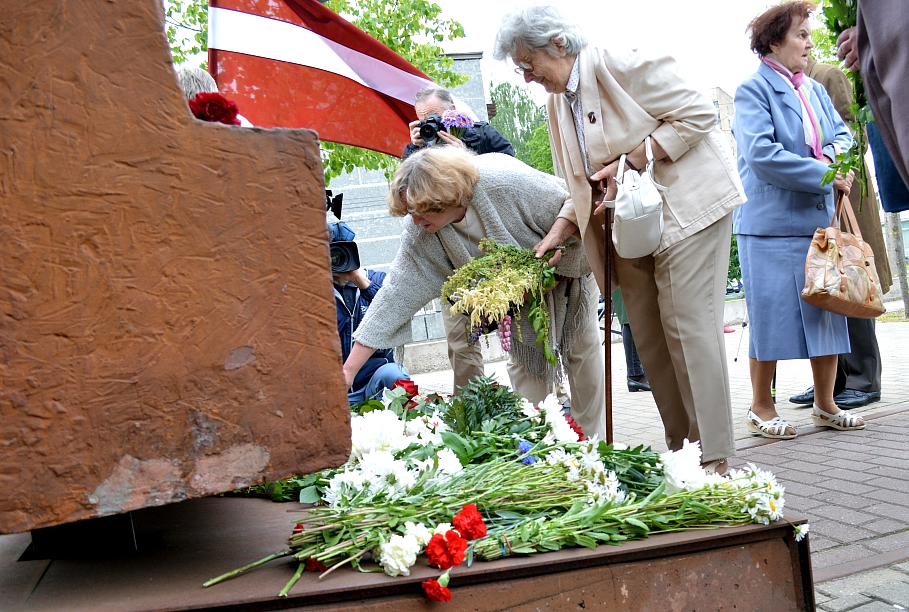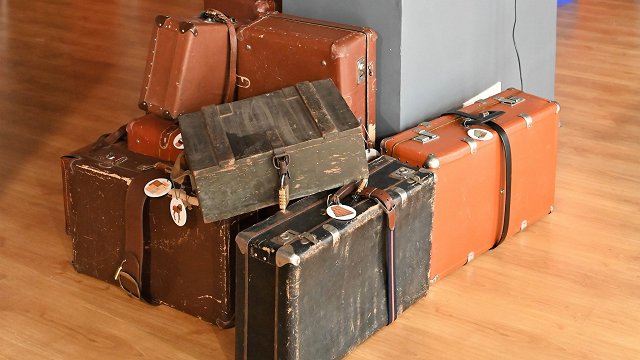President Raimonds Vejonis started a series of official engagements by opening a conference dedicated to 'Siberia's children' - the thousands of young Latvians who were sent away from their homeland.
Tas, ko nesalauza Sibīrija, bija tautas brīvais gars. Šodien pieminam 1941.14.06. upurus, - @Vejonis #Sibīrijasbērni konferences atklāšanā. pic.twitter.com/Y47uagHuJm
— Valsts prezidents (@Rigas_pils) June 14, 2017
People gathered at the rail stations from which people departed in cattle trucks - many never to see their homes again - to speak and lay flowers in memory of the victims of one of the most brutal examples of unwarranted collective punishment in history.
There were two main waves of deportations, one in the wake of the Soviet Union's 1940 occupation of independent Latvia, which saw more than 15,000 people (including 2,400 children under the age of ten) loaded into cattle trucks on June 14, 1941.
Families were separated. Some children never saw their fathers again. There were numerous deaths during the journey of thousands of kilometers in cramped, unsanitary conditions.
According to the Museum of the Occupation of Latvia: "Conditions in the hard labour camps were inhumane. The inmates lost their identities, and were terrorised by the guards and criminal prisoners. Food rations were meager, and did not replace the calories expended through work. People grew weak, and were crippled by diarrhoea, scurvy, and other illnesses.
Winters were marked by unbearable cold, and many did not survive the first one. Only a small part of those deported in 1941 later returned to Latvia. The families in forced settlement had to fend for themselves in harsh conditions; the death rate among the very young and the elderly was likewise high."
A second wave of deportations on an even larger scale, involving some 42,000 men, women and children took place on 25 March, 1949.
Foreign Minister Edgars Rinkevics provided a reminder of the day's significance, too.
Today flags are flying half-mast in Latvia commemorating victims of Soviet regime, many were deported to Siberia, many killed #neveragain
— Edgars Rinkēvičs (@edgarsrinkevics) June 14, 2017
In Brussels, Baltic members of the European Parliament also marked the occasion.
Pieminot Komunistiskā genocīda upuru dienu, Baltijas deputātu organizēts piemiņas brīdis ar EP prezidenta Tajani dalīdzdalību #neveragain pic.twitter.com/ICjp6HxlNo
— Valdis Dombrovskis (@VDombrovskis) June 14, 2017
Further afield still in Canada, Baltic people came together - Estonia and Lithuania suffered in the same way as Latvia.
Incredibly moving Canadian commemoration of #Baltic victims of Soviet deportations in June '41 at Toronto City Hall https://t.co/bDtjFKv5k0 pic.twitter.com/OQ4sV5qxuA
— Marcus Kolga (@kolga) June 14, 2017
The effects on Latvian society were huge and can be felt to this day.
You can read more facts about the deportations HERE.
An excellent multilingual online virtual museum about the experiences of children deported to Siberia is HERE.


























